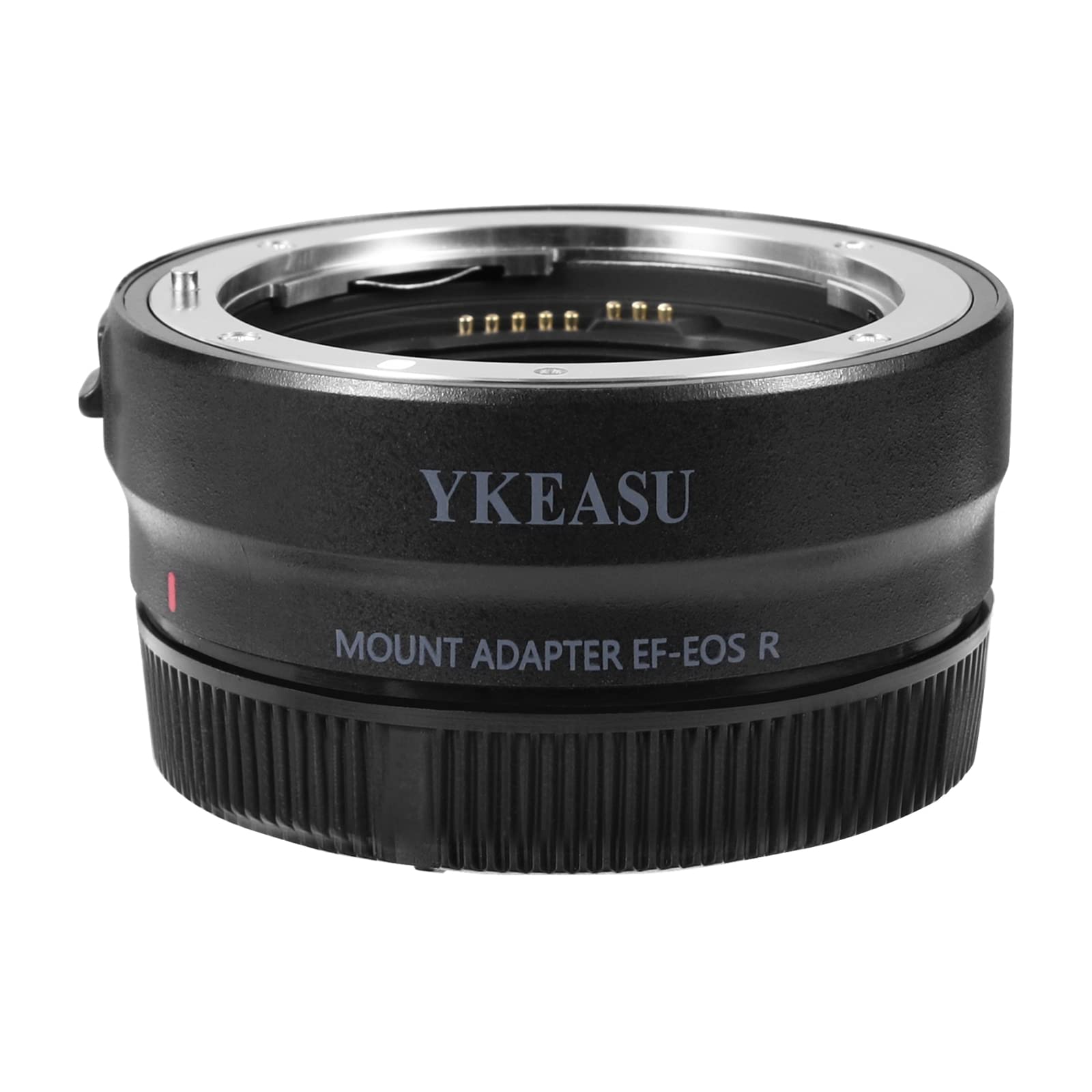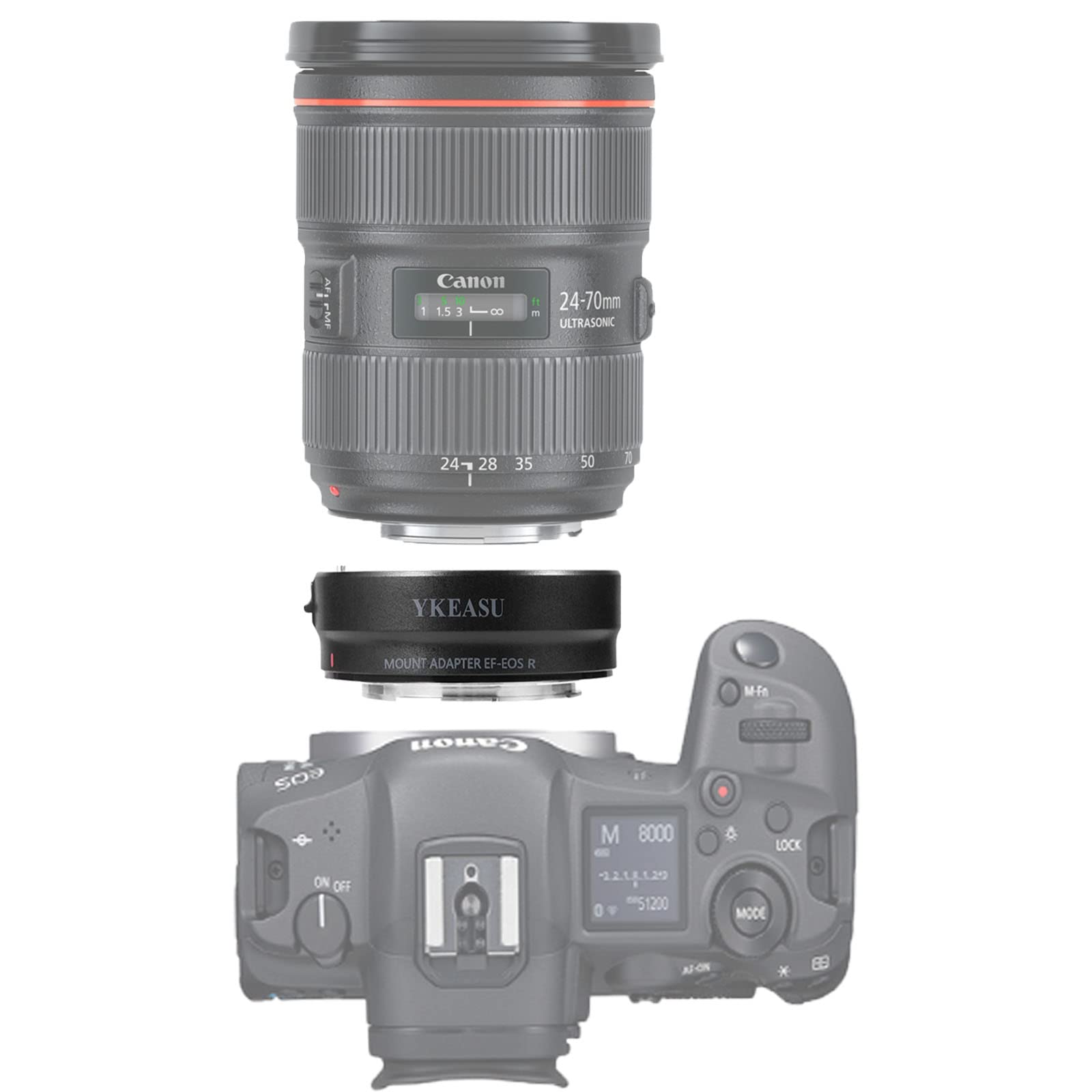Deliver to Vietnam
IFor best experience Get the App







Transform Your Lens Game! 📸
The EF-EOS R Mount Adapter allows seamless compatibility between Canon EF/EF-S lenses and Canon EOS R series cameras, featuring fast auto-focusing, direct aperture control, built-in image stabilization, and a rugged, weather-sealed design for reliable performance in any environment.
W**.
As expected
Definitely was as expected. I would buy again.
P**N
The price and Compatibility was great
Great adapter I use it with my Sigma 17-70mm lens
J**.
Works as advertised
Good preproduction for price
S**D
No drawbacks vs the Canon branded adapter
This adapter works great for using our EF lenses on our Canon EOS R6. It's significantly cheaper than the Canon brand adapter, and I can find no reason to buy the brand name in this case. It adds about 1" of length to the EF and EF-S lenses, but that's equivalent to the Canon part. The mounting surfaces are all metal and it also appears to be weather sealed similarly to the Canon adapter. Our adapter locks up nice and tight with both the R6 body and our EF lenses. All features of the lens work perfectly and the body recognizes the model and firmware version of the lenses with no problems.Keep in mind that using this adapter with an EF-S lens *may* be less than ideal simply because the EF-S lenses are designed for APS-C sized sensors. This is especially true with non-Canon branded lenses. Your mileage may vary, depending on your equipment, so do some research about your particular camera body and lens combination. We have not used any EF-S lenses on our R6 with this adapter and don't really intend to, but it will allow them to mate up and be used together.
P**L
Matched EF Lenses To An R Body
I expected this to work perfectly and it did. There are no optics inside this converter. The sole function is matching electrical contacts as well as moving the EF lenses further from the sensor. Due to the nature of MILCs (Mirrorless Interchangeable Lens Camera) the last element in the lens resides much closer to the sensor than in DSLR cameras. This permits smaller and thinner lenses for MILCs and, again, all things being equal will result in better images than the equivalent DSLR lenses.This distance differential is why an EF-RF converter (Canon nomenclature) doesn’t need any optics. It only needs to move the EF (DSLR) lens as far away from the sensor as it’d be on the native DSLR camera. The converter also needs to faithfully pass communications from the RF camera to the EF lens.This converter performed both functions. As a demonstration test, I used a Canon EF 24-70 f/2.8L lens. Please see the photos that are part of this review. Starting with the lens, converter and camera separate, I attached the converter to the camera and then the lens to both. An inevitable downside to using EF lenses on newer RF cameras is losing the lightweight handiness of the camera with its kit lens.The converter comes with front and rear caps to protect the mounts. I’ve included two snaps using the abovementioned lens on the MILC finding it worked as well as RF lenses on the MILC or the EF lens on various DSLRs.
Trustpilot
2 months ago
1 month ago